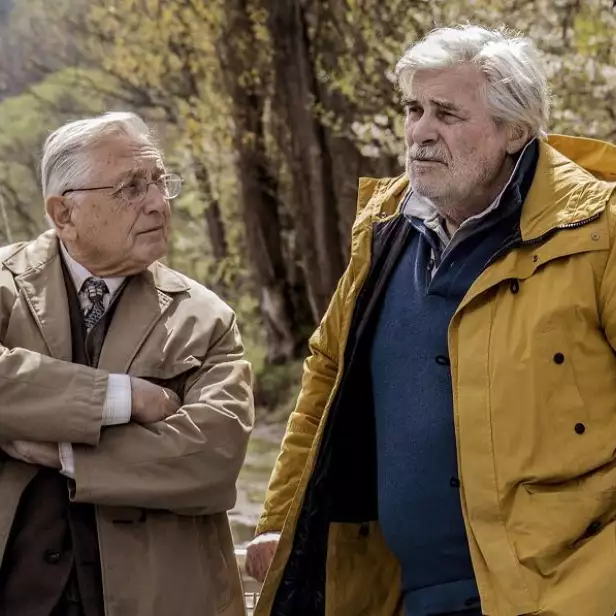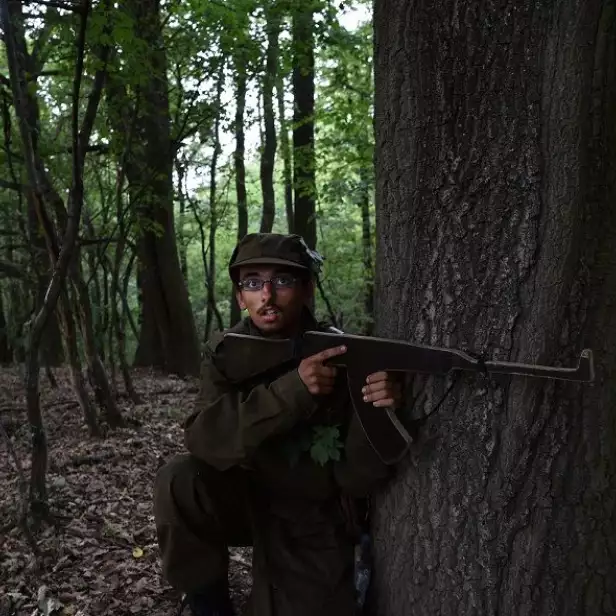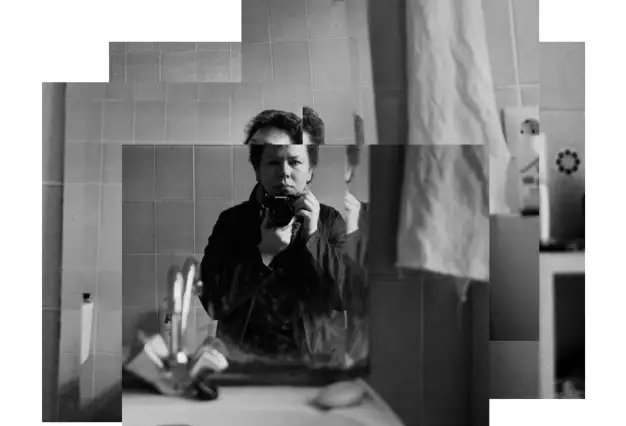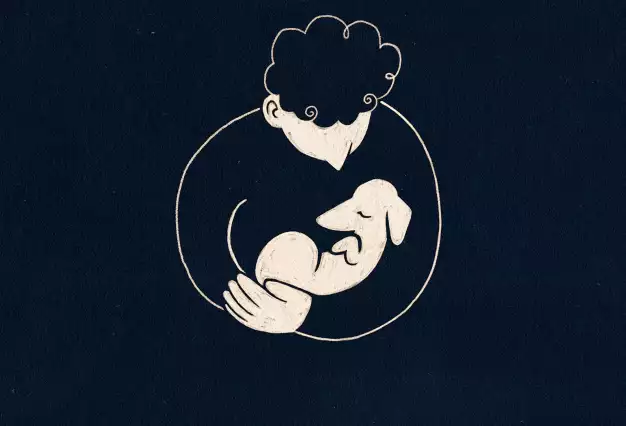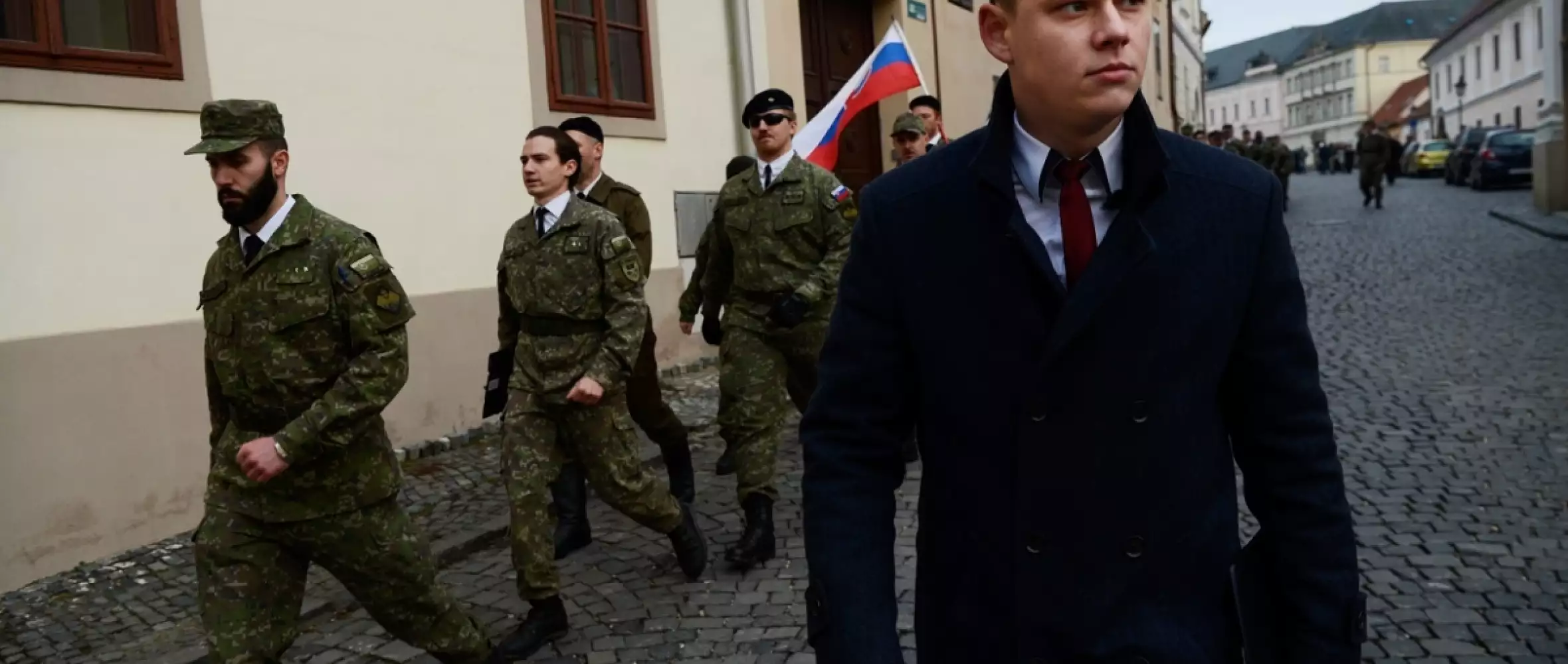
25 January 2018
Czech Films at the Berlinale 2018
Czech Films at the Berlinale 2018

Three Czech coproduction films have been selected for the Berlinale IFF. The psychological drama Touch Me Not, directed by Adina Pintilie, will be included in Competition, while the road movie Interpreter, directed by Martin Šulík and starring Jiří Menzel and Peter Simonischek, premieres in Berlinale Special, and Panorama presents the painfully relevant documentary When the War Comes by Jan Gebert.
The film The Interpreter, a Slovak-Czech-Austrian coproduction, is the work of prominent Slovak director Martin Šulík and the equally noted screenwriter Marek Leščák, who already have several successful films to their names, including The Garden (1995) and Orbis Pictus (1997). The lead roles were played by the Oscar-winning director Jiří Menzel and the Austrian actor Peter Simonischek, winner of the European Film Award for best actor in 2016, for the film Tonni Erdmann.
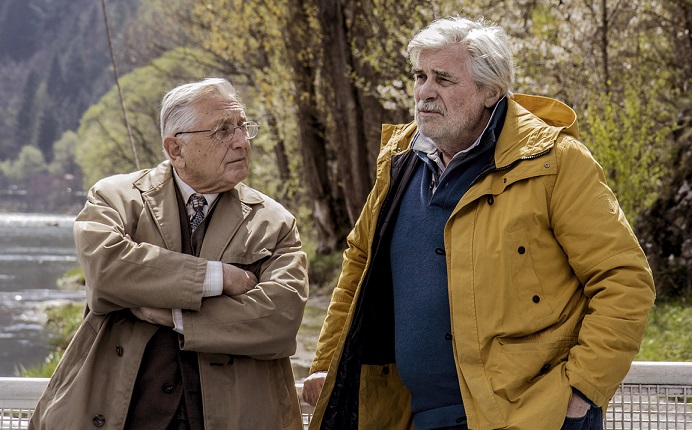 The Interpreter tells the story of 80-year-old Ali Ungár (Menzel) who comes across a book by a former SS officer, describing his wartime activities in Slovakia. Ali realizes that one of the passages recounts the execution of his parents, and sets out to visit the former SS man, who now lives in Vienna. Instead of his parent’s murderer, though, Ali finds only his 70-year-old son. Georg Peis (Simonischek) is a former teacher who has distanced himself from his father’s past and is now struggling with alcoholism. The interpreter’s visit stirs his curiosity, so he decides to find out who exactly his father was before he dies. So it is that the two old men, the ascetic Ali and the bon vivant Georg, embark on a journey together to find the surviving witnesses of the wartime tragedy.
The Interpreter tells the story of 80-year-old Ali Ungár (Menzel) who comes across a book by a former SS officer, describing his wartime activities in Slovakia. Ali realizes that one of the passages recounts the execution of his parents, and sets out to visit the former SS man, who now lives in Vienna. Instead of his parent’s murderer, though, Ali finds only his 70-year-old son. Georg Peis (Simonischek) is a former teacher who has distanced himself from his father’s past and is now struggling with alcoholism. The interpreter’s visit stirs his curiosity, so he decides to find out who exactly his father was before he dies. So it is that the two old men, the ascetic Ali and the bon vivant Georg, embark on a journey together to find the surviving witnesses of the wartime tragedy.
The Interpreter was filmed at various locations around Slovakia and in Vienna. In addition to Marek Leščák, the director brought in another long-time collaborator of his, cinematographer Martin Štrba. Alongside the lead duo, Zuzana Mauréry, Eva Kramerová, and Attila Mokos play supporting roles. The film was produced by the companies Titanic (Martin Šulík, Slovakia), InFilm (Rudolf Biermann, Czech Republic), and COOP99 (Bruno Wagner, Austria). The coproducers are RTVS: Radio and Television of Slovakia and Czech Television. The project was supported by the Czech Film Fund and the Slovak Audiovisual Fund.
Touch Me Not
This psychological drama is the feature debut from Romanian Adina Pintilie, who graduated from the Directing Department at the National University of Drama and Film in Bucharest. Her medium-length film Don’t Get Me Wrong received the Golden Dove for best documentary at DOK Leipzig 2007. Touch Me Not is a film about how human beings can reach intimacy in the most unexpected ways.
 The main character, Laura, has worked for years in a mannequin factory, peeking in on other people’s intimate lives. She pays to be touched, hiring young boys to create an illusion of intimacy. Tudor is an actor who earns his living as a masseur and wants a woman who rejects his attempts at making contact. One day, Laura sees an interactive show by Tudor and Paul that deeply moves her, and gradually becomes a silent witness to their lives, their solitary longing resonating with her own. In this mirroring process, the walls that she has so skillfully built around her collapse under the torrent of her repressed emotions.
The main character, Laura, has worked for years in a mannequin factory, peeking in on other people’s intimate lives. She pays to be touched, hiring young boys to create an illusion of intimacy. Tudor is an actor who earns his living as a masseur and wants a woman who rejects his attempts at making contact. One day, Laura sees an interactive show by Tudor and Paul that deeply moves her, and gradually becomes a silent witness to their lives, their solitary longing resonating with her own. In this mirroring process, the walls that she has so skillfully built around her collapse under the torrent of her repressed emotions.
Pintilie wrote, directed, and edited the final film. The main role is played by Laura Benson, a British actress based in France. The film was shot in Bucharest, Leipzig, and Sofia, and is 125 minutes long. Touch Me Not was supported by the Czech Film Fund as well as Eurimages. The main producer is Manekino Film (Adina Pintilie, Bianca Oana), with coproducers Rohfilm (Benny Drechsel), Agitprop (Martichka Bozhilova), Les Films de L’Étranger (Phillipe Avril), and, on the Czech side, PINK (Radovan Síbrt, Alžběta Karásková).
When the War Comes
PINK is also the company behind When the War Comes, the remarkable documentary by Jan Gebert appearing in the Panorama section of this year’s Berlinale. Gebert follows a fresh-faced university student named Peter, who has a nice car and a girlfriend, but his main interest lies elsewhere: in the forest mountains, with his militia, Slovenskí branci (Slovak Recruits). With 400 young members, most of them teenagers, and units throughout Slovakia, it’s one of the largest paramilitary groups in Eastern Europe. Peter himself underwent the same training from the Russian Cossacks as the Ukrainian separatists. The reason? He fears Europe is heading inevitably toward a clash of civilizations, and he is determined to defend the Slavic world with a gun in his hand.
“Most of the militia members looked completely normal at first. I found out they study at grammar schools and universities, they lead normal lives by day. That was actually a bigger shock than if they’d started doing the Nazi salute,” says Gebert of his first visit. He describes the situation as similar to what it was in 1930s Germany when Nazism succeeded in addressing normal, mainstream society. “The parents acknowledge the militia’s activities; the police almost always leave them alone. On TV, the militia members hear politicians like Zeman, Orbán, and Trump, who say and think the same things they do. This just encourages Peter.”
According to Gebert, though, Peter has greater ambitions than simply leading the militia: He wants to go down as a great figure in Slovak history. “With the Recruits, he practices working with people, speaking publicly. He’s created a kind of model totalitarian society and proclaimed himself chief for life. During training he takes away the Recruits’ names and gives them numbers instead. I think he’d like to apply this model to all of Slovakia one day.” For Gebert, the film is mainly about the birth of totalitarianism.
Jan Gebert graduated in history and Latin American studies from Charles University in Prague. His directing debut, Stone Games (2012), premiered at the Jihlava IDFF and received a Special Jury Prize. When the War Comes is a production by PINK, HBO Europe, and Croatian coproducers Hulahop Film & Art Production. The authors presented at several international pitching forums (Good Pitch – Britdoc, ZagrebDox, East Doc Platform, DOK Co-Pro Market, and Gap-Financing Market). The film received support from the Czech Film Fund.
Download
-
0d90ca5a252371b0.pdf
pdf 0.55 MB


